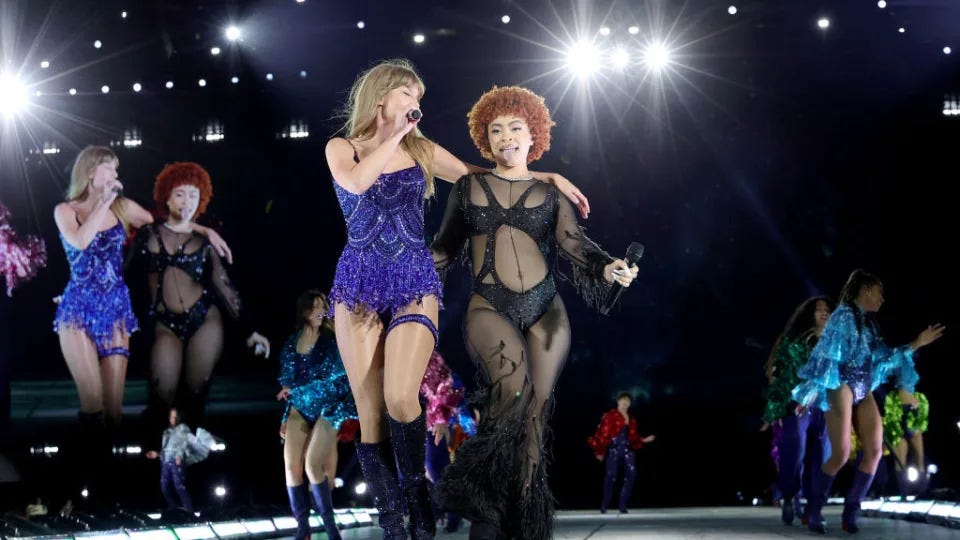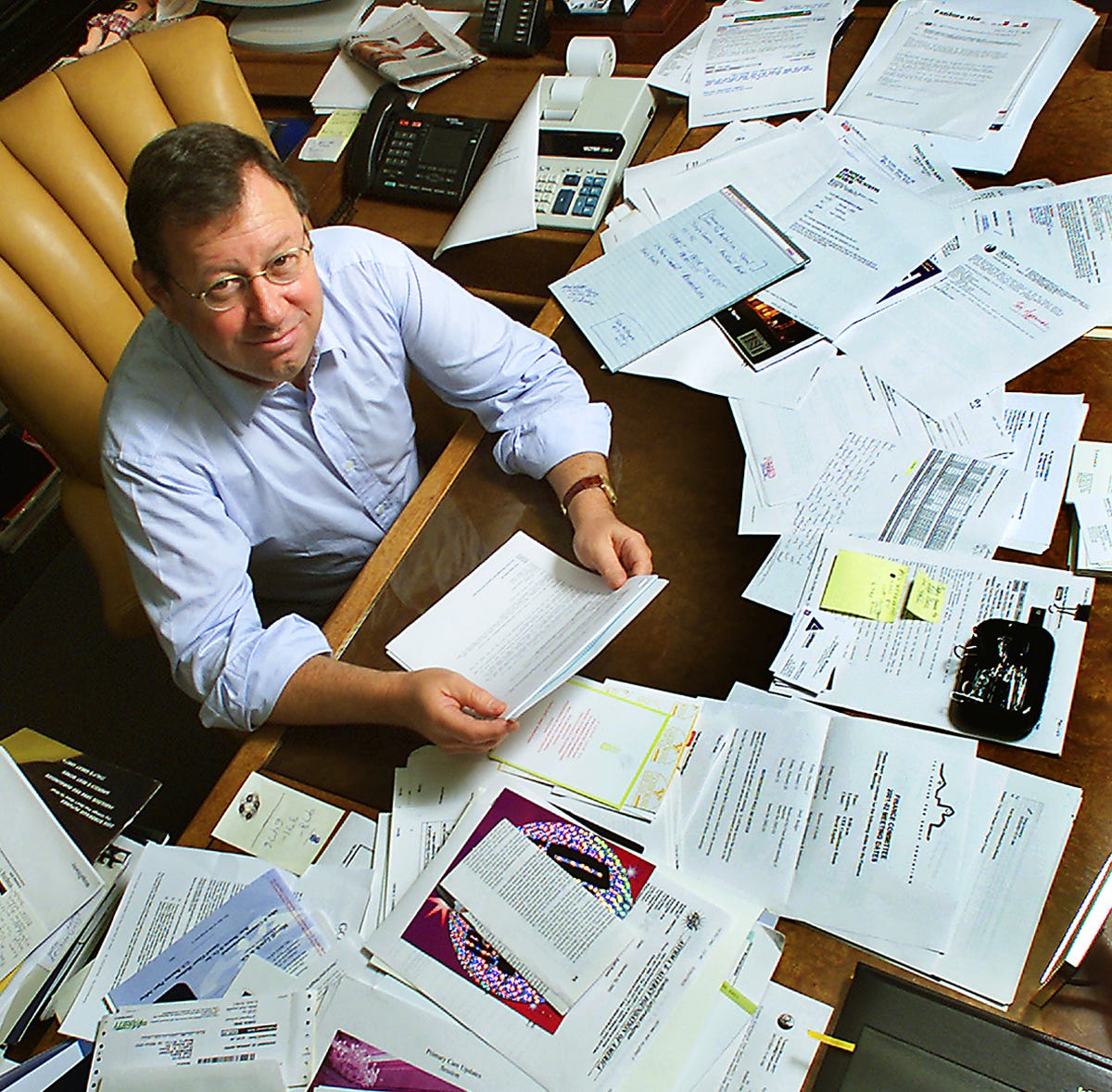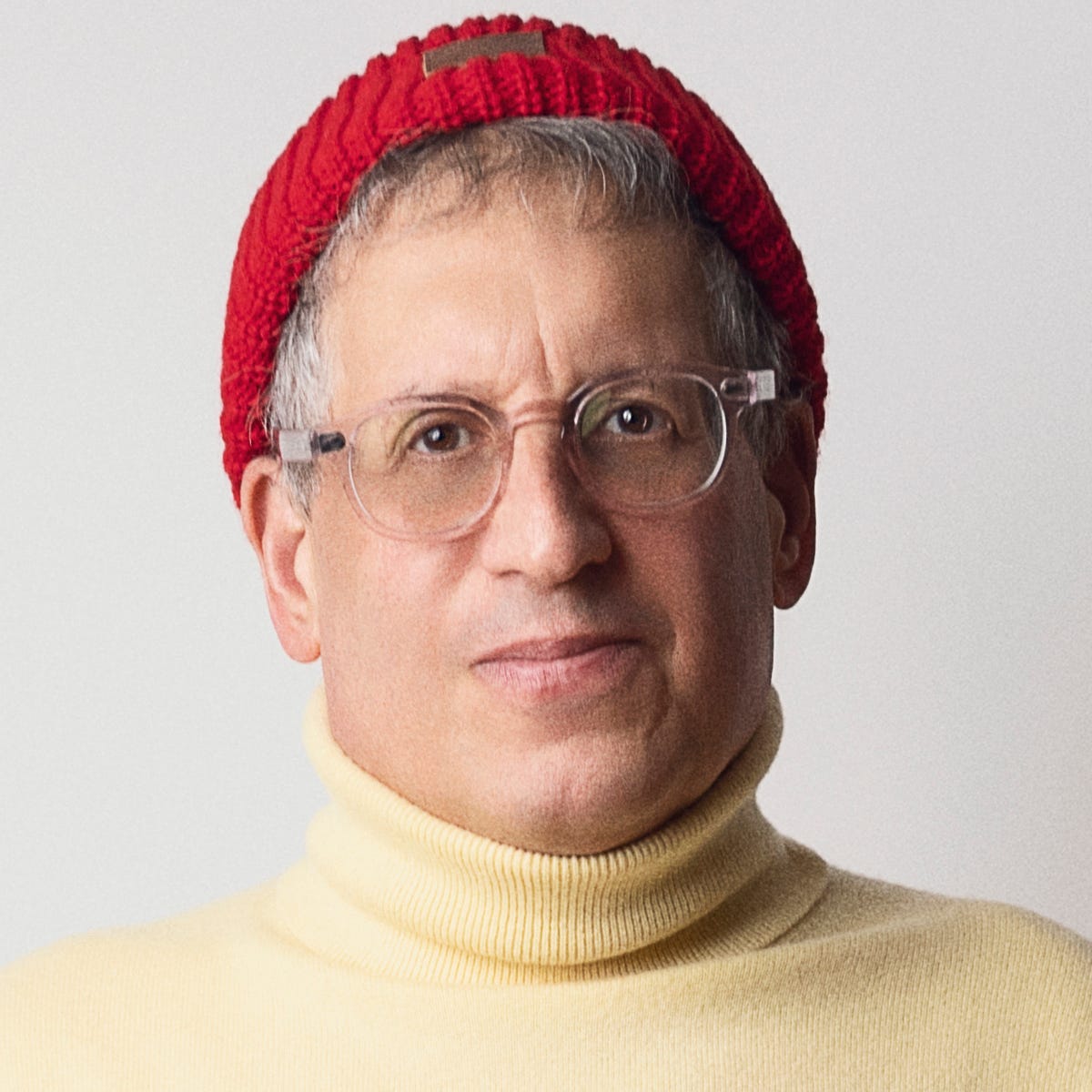This Week On The Desk
How Ticketmaster Works 📰
Signings ✍🏾 - NLE Choppa
Creative($) of the week 👩🏽🎨 - Marty Diamond
Links 🔗 - Black Folk Music
The sneaky economics of Ticketmaster
Ticketmaster’s maligned fees and customer service issues are again under the microscope. Will American music fans ever see anything better?
It was the type of disaster that made Americans reconsider the concept of live music sales.
An iconic female artist, whose popular love songs delighted multiple generations, announced a national tour for the first time in many years. Countless fans cleared their schedules to buy tickets the moment they went on sale.
Alas, thousands of hopes were dashed. Tickets sold out instantly and were found for resale at up to 10x face value. Many people claimed they were “confused by the system.”
That tour, of course, was… Barbra Streisand in Concert, in 1994.
Long before millions of fans and bots crashed the Taylor Swift Eras Tour presale, supporters have felt jilted after trying to buy tickets to artists ranging from Babs to Miley Cyrus to Harry Styles and beyond.
As with Swift, most of their ire has been directed at the same entity: Ticketmaster.
The company, by far the most dominant ticketing platform in the world, now faces a class-action lawsuit from Swift fans. The DOJ has opened a broad antitrust investigation of Ticketmaster parent Live Nation.
But Ticketmaster has been scrutinized many times before.
“History continually repeats itself,” said former Ticketmaster CEO Fred Rosen, in an interview with The Hustle.
A few recent Ticketmaster receipts from customers who purchased tickets for the Taylor Swift Eras Tour demonstrate the platform’s large fees
Unlike Swift fans, however, Rosen sees the Eras Tour presale as a case of demand far outweighing supply and Ticketmaster as an “easy scapegoat” targeted by people who rarely blame the artists, venues, and promoters that set ticket prices and also try to maximize profits.
As Ticketmaster’s top boss in the 1980s and 1990s, Rosen pioneered the hated fees that Swifties and politicians have pointed to as an abuse of power propagated by the company’s dominance. Ticketmaster just transacted a record $6.7B of tickets in the most recent quarter.
Is Ticketmaster — and parent company Live Nation — too powerful? Or is the system set up to squeeze live music fans, no matter who challenges them?
The business model that made Ticketmaster a juggernaut
To become so big it faced accusations of being a monopoly, Ticketmaster had to unseat another disruptor that people considered a monopoly.
In 1967, Ticket Reservation Systems, which later rebranded as Ticketron, developed a computerized system. Instead of waiting in long lines or mailing checks, people could buy ready-to-print tickets from kiosks at retail locations scattered in big cities, all connected to a centralized server.
The convenience came with a cost for the buyer and the venue:
Ticket buyers in the mid-1970s paid a service charge of ~$0.50-$0.75 per ticket, which Ticketron split with the retail locations that hosted the kiosks.
The venues that partnered with Ticketron paid ~$0.25 per ticket sold, and they owed rental fees for kiosks on their premises.
Ticketron was backed by Seagram’s whiskey magnate Edgar Bronfman, and it fended off competitors — until Ticketmaster entered the market.
The company was founded by two college students in Phoenix but sputtered until it was purchased by Hyatt hotels founder Jay Pritzker in 1982. He installed Rosen as CEO, who focused on gaining ground in the concert business, where Rosen believed profits would be highest.
Ticketmaster went from selling ~$1m in tickets during Rosen’s first year in 1982 (~10% of Ticketron’s sales) to ~$600m in 1990 and nearly $2.5B in 1998, Rosen’s last year as CEO.
Fred Rosen, then CEO of Ticketmaster, poses at his desk in 2001, several years after multiplying the company’s tickets sales from $1m to $2.5B per year (Ken Hively/Los Angeles Times via Getty Images)
Rosen said Ticketmaster, which sold at in-person locations and over the phone (and eventually the internet), was faster and more reliable than Ticketron, allowing popular events to sell out in hours rather than days.
But the business strategy that separated the company from its rival was its fees.
Rosen believed venues, not concertgoers, were his company’s real customers, and flipped Ticketron’s model:
Instead of charging venues to use their ticketing system, Ticketmaster offered to pay them with a cut of the service charges.
In exchange, Ticketmaster became their exclusive ticketing platform.
Ticketmaster, aided by the deep pockets of Pritzker, even floated advances to venues before the fees came in. Ticketron failed to compete and was bought by Ticketmaster in 1991.
Many concert promoters eventually wanted a piece of the fees, too, and, years later, some top-tier artists started to negotiate for a share, according to Rosen.
“That’s how Ticketmaster got built,” Rosen said. “Where everybody had a piece.”
More sharing, more charging
Under the sharing system, fees went up, and the added cost was borne by concertgoers.
Ticketmaster’s first show, ELO in 1977, featured a $6.50 ticket price with a $0.25 service charge, according to the bookTicket Masters: The Rise of the Concert Industry and How the Public Got Scalped.
By 1994 in Los Angeles, somebody who used Ticketmaster’s phone service to buy an $18.50 Stone Temple Pilots ticket, the most expensive seat, owed $8.25 in extra fees ($4.25 if they bought tickets at a Ticketmaster retail outlet).
Recent Ticketmaster receipts from customers who purchased tickets through the platform (via readers of The Hustle)
“When you get through paying everybody, these things are expensive. They’re labor-intensive. There are a lot of people involved,” Rosen said. “And then the buildings get smarter, because as you bring more efficiency they all want more.”
Fans were frustrated by the escalating fees, as well as the opacity surrounding their purpose. The company barely explains what the fees are for. (Ticketmaster did not respond to an interview request from The Hustle.)
The so-called “drip pricing strategy” of attaching fees at the end of the purchase swayed many price-conscious consumers to break their budgets.
“That increases the number of tickets that are sold because of people…who wouldn’t have bought but now are buying,” said Steven Tadelis, an economics professor at the University of California, Berkeley who has studied drip pricing.
In the mid-’90s, Ticketmaster claimed that average fees constituted ~14% of a ticket’s face value. Rosen said Ticketmaster took ~20% of total fees as profit during his time as CEO.
Since then, Ticketmaster has increased its influence, merging with Live Nation in 2010.
Live Nation owns ~400 venues worldwide and holds tens of thousands of shows every year as a promoter.
Industry experts say ~70%-80% of major US venues have exclusive contracts with Ticketmaster.
Recent Ticketmaster receipts from customers who purchased tickets through the platform (via readers of The Hustle)
In 2019, the Justice Department found Live Nation had exerted pressure on venues to sign with Ticketmaster or risk not receiving Live Nation shows, violating a consent decree signed when the companies’ merger was approved.
Those deals with venues make it hard for artists to use another ticketing platform. While AEG worked as Swift’s promoter, for instance, AEG claimed it could not use its AXS ticketing platform because the vast majority of NFL stadiums contracted with Ticketmaster.
“Your choice becomes do a deal with them and do this tour, or don’t and don’t tour,” said Serona Elton, a former executive with EMI and director of the University of Miami’s music industry program.
The partnership with Live Nation has also coincided with an escalation in service charges. Concertgoers are now likely to pay ~30% of a ticket’s face value in fees, according to industry experts.
Those fees tend to increase with the price of tickets, and Ticketmaster’s recent record for transactions on which it could charge fees came with ticket prices higher than ever because of increased demand.
Zachary Crockett / The Hustle
Ticketmaster can also collect fees on multiple transactions because of its controversial secondary sales market. The gross for fees on its secondary market was up 132% in Q3 compared to the same time period in 2019.
The Hustle surveyed 606 people about their experiences with Ticketmaster; 601 (99.2%) said they believed its fees were too high. When we analyzed fees on 40 tickets to recent concerts, including the Eras Tour, the average fees took up ~28% of a ticket’s face value.
There were a few notable outliers:
48% for the Backstreet Boys in Charlotte
46% for Earth, Wind, and Fire and Santana in Chula Vista, California
11% for Reba McEntire in Corpus Christi, Texas
One respondent recalled going to Sesame Street Live a few years ago and paying more for fees than they did for tickets.
Rosen said he didn’t care that the system annoyed fans, noting there’s still high demand for concerts, fees and all.
“When you bring that up, it’s irrelevant to me,” he said. “The fact that no one shared in the service charge was idiotic. No one thought that ticketing was a business. I thought it was a business. I’m not ashamed of that.”
The conundrum of more competitors
Although they regularly get called a monopoly, Ticketmaster and Live Nation have some competition. They weren’t even the sole parties involved with the Taylor Swift sale.
SeatGeek had exclusive contracts with a few venues and operated as the ticketing platform for Swift concerts in places like Glendale, Arizona, and Arlington, Texas. Buyers experienced similar problems on SeatGeek as they did on Ticketmaster.
SeatGeek also charges exorbitant fees for concerts, as does AXS. That begs a question: Would more competition make a difference?
As Rosen realized decades ago, fans are not the customer. So ticket platforms compete to land exclusive contracts with venues — mostly by offering them large sums of money, as Rosen did when he was CEO and as ticket platforms still do now.
“And how are you going to offer larger amounts of money?” said Dean Budnick, co-author of Ticket Masters. “Well, it’s got to come out somewhere. The way you’re gonna do it is you’re gonna have larger and larger service fees.”
Budnick says the Great Britain model may provide lower service charges for consumers.
British venues rarely have exclusive ticketing platforms. When companies don’t try to gain exclusivity, they don’t have to offer as large of a cut of the fees, bringing down the amount charged to concertgoers.
Fans typically see fees closer to 15% of the face value of a ticket.
Absent that type of overhaul to the system, which would likely require government intervention, don’t expect many changes when you buy concert tickets in the near future.
A Ticketmaster sign at the Beacon Theatre on the Upper West Side in New York City (Noam Galai/Getty Images)
Rosen, in fact, has attempted to unseat Ticketmaster and Live Nation. In 2011, he helped start Outbox Enterprises, a company that assisted venues in selling tickets on their own. It didn’t succeed, he said, because most venues liked their financial arrangements with Ticketmaster.
And fans, despite their hatred of Ticketmaster, keep paying.
Amy Kelsey, a Central Pennsylvania resident, is one of the many people who has used Ticketmaster in its record-breaking year, purchasing tickets for a Billy Strings concert in New Orleans. The fees for two $69.50 tickets were $39.50 — money she would have preferred to spend on another expense for the trip.
But Kelsey doesn’t regret her purchase one bit.
“We’ll still go — eat the fees and go have a good time,” she said, “because at the end of it all there’s nothing like live music.”
Signings ✍
NLE Choppa signs with UTA
NLE Choppa signed with Noah Simon & Chris Jordan of UTA for touring.
Creative($) of the week 👩🏽🎨
Marty Diamond - Agent | Instagram
Links 🔗
#WhoeverNeedsToHearThis
I want to make beautiful things, even if nobody cares. - Saul Bass

















